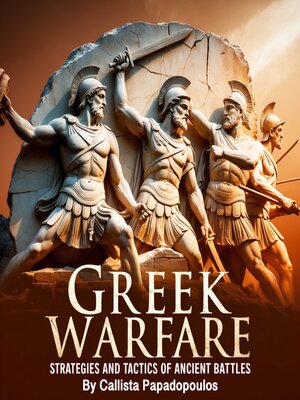Greek Warfare
audiobook (Unabridged) ∣ Strategies and Tactics of Ancient Battles
By Callista Papadopoulos

Sign up to save your library
With an OverDrive account, you can save your favorite libraries for at-a-glance information about availability. Find out more about OverDrive accounts.
Find this title in Libby, the library reading app by OverDrive.



Search for a digital library with this title
Title found at these libraries:
| Library Name | Distance |
|---|---|
| Loading... |
This audiobook is narrated by a digital voice.
The development of Greek warfare emerged from the unique geographical, political, and cultural conditions of the ancient Mediterranean world, creating military traditions that would fundamentally transform the nature of combat and establish tactical innovations that influenced military thinking for millennia. The mountainous terrain of Greece, with its countless valleys separated by rugged peaks and its extensive coastlines dotted with natural harbors, created conditions that favored the development of independent city-states whose frequent conflicts drove rapid military innovation and tactical refinement.
The early Greek warrior culture drew its initial inspiration from the heroic traditions preserved in Homer's epic poems, which presented idealized visions of individual combat and martial excellence that profoundly influenced Greek conceptions of honor, courage, and masculine virtue. The Iliad and Odyssey, while describing events from the distant Bronze Age, provided cultural templates that shaped how classical Greeks understood the proper relationship between warfare and social status, individual achievement and community obligation, military service and civic identity.
The transition from Bronze Age warrior societies to the Iron Age polis system created new forms of military organization that reflected and reinforced the democratic and oligarchic institutions that characterized classical Greek civilization. The emergence of the citizen-soldier ideal, where military service became both a privilege and obligation of free men who possessed sufficient property to equip themselves for war, established fundamental connections between political participation and military duty that would influence Western political thought for centuries.







